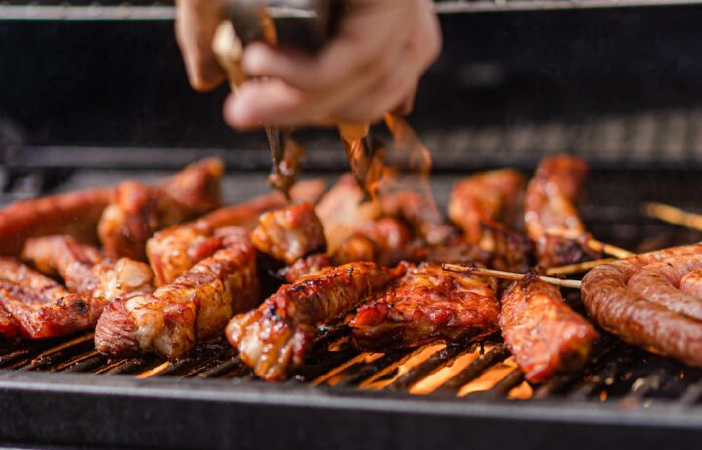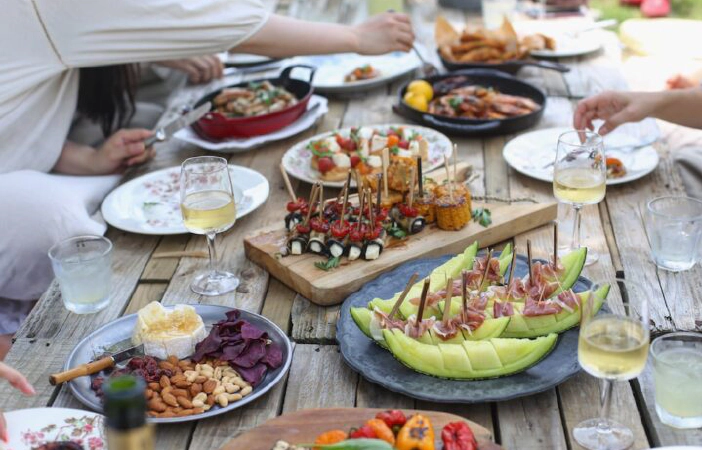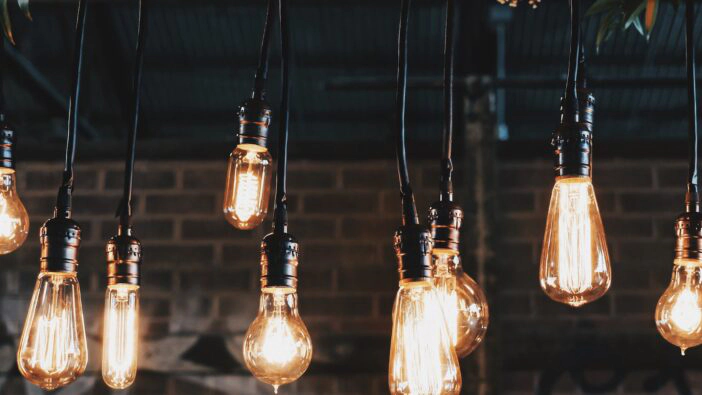
Welcome to the wild and rugged world of outdoor cooking! There's nothing quite like the thrill of searing a perfectly marbled steak or hearing the sizzle of veggies hitting a hot grill on a warm summer evening.
But let's be real — the great outdoors can be a treacherous place for even the most experienced chefs. From improperly prepared cooking surfaces to neglected equipment and overcomplicated menus, there are a myriad of mistakes to be made. But fear not, we have compiled a list of common mistakes and practical tips to help you navigate the choppy waters of outdoor cooking and emerge victorious. So grab your tongs, crank up the tunes, and let's get started.
Not Properly Preparing the Cooking Surface
Here's the thing, the surface you're cooking on is just as important as the food you're cooking. One common mistake people make is not properly preparing the cooking surface. A dirty or poorly-maintained grill or griddle can lead to uneven cooking, excessive smoke and even potential safety hazards.
Before cooking, make sure to thoroughly clean and inspect the cooking surface. Scrub the grates or griddle with a grill brush or scraper to remove any debris or residual food. If the grates are particularly dirty or greasy, soak them in warm, soapy water before cleaning. While cleaning, keep an eye out for any cracks, rust or other damage that may require repairs or replacement.

And don't forget to properly preheat the cooking surface. This makes sure the food cooks evenly and reduces the chance of it sticking to the grates or griddle. Simply turn on the heat and wait until the surface is hot before placing any food on it.
Take that extra time to properly prepare and maintain the cooking surface, you can be sure that your outdoor cooking experience is a success.
Overcomplicating the Menu
Okay, let's talk about one of the biggest mistakes people make when using outdoor kitchens: overcomplicating the menu. Everyone wants to impress their guests with fancy dishes and exotic flavors, but sometimes less is more. Trying to make too many dishes at once can lead to chaos and disaster.
By pragmatic about the limitations of your outdoor kitchen. It may not have all the equipment you're used to, and you might not be able to prepare dishes with the same ease as you would indoors. Keep it simple with a few dishes that you know you can execute well.
Another thing to keep in mind is the weather. If it's too hot, complicated dishes can be difficult to manage, and the heat can also affect the quality of the food. And if it's too cold, you might encounter some logistical issues with cooking and keeping food warm.
Don't forget about any possible dietary restrictions and preferences of your guests. Trying to cater to everyone's needs can be overwhelming, so it's okay to ask them in advance what they like and don't like. If you're unsure, it's always better to keep it simple and stick to classic crowd-pleasers.

The bottom line is, you don't need to have a fancy menu to impress your guests. Keep it simple, focus on quality over quantity, and above all, enjoy the process of cooking outside. Remember, the whole point of having an outdoor kitchen is to have fun and create a great atmosphere, so don't stress over the food too much.
Neglecting to Maintain the Equipment
It's easy to get caught up in the heat of the moment when cooking outdoors, but neglecting to maintain your equipment can result in disastrous consequences. From grease build-up to rusted grates and broken knobs, failing to give your outdoor kitchen some TLC can ruin your meal.
Grease build-up is one of the biggest culprits of equipment malfunction. Not only can it cause your grill to smoke excessively, but it can also lead to flare-ups and potential fires. Make sure to regularly clean out the grease tray and wipe down the grates with a grill brush.
Rusted grates can quickly turn a delicious meal into a disappointing disaster. To prevent rust, make sure to clean off any food debris after each use and store your grates in a dry location when not in use.
Broken knobs, loose hinges, and other equipment malfunctions can cause frustration and even safety hazards. Take the time to regularly inspect your equipment and make any necessary repairs.
By neglecting to maintain your equipment, you're not only risking the quality of your meals, but also putting yourself and your loved ones in danger. Stay on top of maintenance to ensure that your outdoor cooking experience is as safe and delicious as possible.
Not Considering Lighting and Shade
One of the biggest mistakes people often make when planning an outdoor kitchen is not giving proper thought to lighting and shade. The lighting around your cooking and dining area is important to consider when designing your outdoor kitchen. Without enough light, you could run into trouble trying to cook as the sun sets. Conversely, too much light can be just as distracting and unpleasant.

As for shade, it's important to take into account where the sun will be in relation to your kitchen during the day. Not only will you want some cool shade to protect yourself from the sun's heat, but did you know that direct sunlight can damage outdoor kitchen appliances over time? One solution could be to install a retractable awning or outdoor curtains to control the amount of shade you have in your cooking area.
Of course, you also want to create a pleasant outdoor dining experience. Properly placed string lights or even a stylish outdoor chandelier can add a fun and classy touch to your kitchen.
Tips and Tricks for Successful Outdoor Cooking
When it comes to outdoor cooking, there are a few essential tips and tricks to keep in mind that will help ensure a successful experience:
- Keep the menu simple | While it can be tempting to try out complex, fancy recipes, it's often best to stick to simpler dishes that are easy to prepare and cook outdoors. Save the gourmet meals for inside the house and focus on grilling up some delicious burgers, hot dogs, or chicken skewers.
- Prep everything ahead of time | The key to successful outdoor cooking is being organized and prepared. Take the time to prep all of your ingredients ahead of time, so you're not running back and forth between the kitchen and the grill.
- Use a meat thermometer | One of the biggest mistakes people make when cooking meat on the grill is overcooking it. Avoid this by investing in a good meat thermometer and monitoring the temperature of your food.
- Don't forget about safety | When it comes to outdoor cooking, safety should always be a top priority. Make sure you have a fire extinguisher on hand, keep children and pets away from the grill, and never leave it unattended.
- Experiment with different marinades and rubs | While you don't want to overcomplicate the menu, adding different marinades and rubs to your meats and vegetables can add a lot of flavor to your dishes. Try out different combinations to find your new favorite.
With these tips and tricks in mind, you'll be well on your way to becoming an outdoor cooking pro. Remember to keep it simple, stay organized, and always prioritize safety. And most importantly, don't forget to have fun and enjoy the delicious food that you've worked so hard to prepare!
